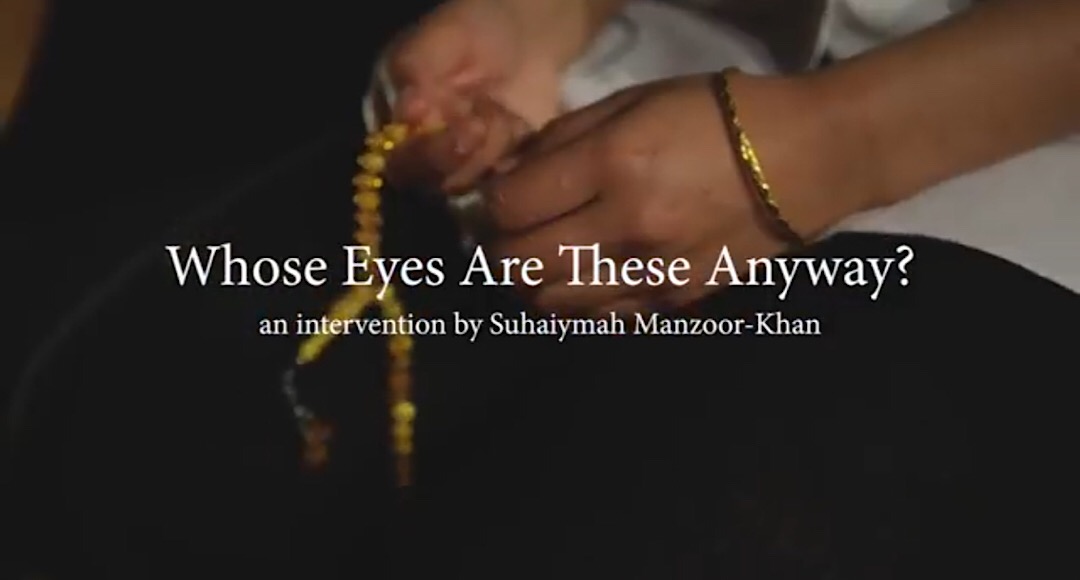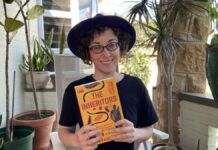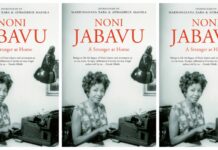Suhaiymah Manzoor-Khan is here to dismantle Islamophobia through her words. Her latest work “Whose Eyes Are These Anyway” tackles Islamophobia, state security, and racism. The Daily Vox team spoke to her about this and more.
Manzoor-Khan’s a writer, spoken word poet, and educator. BBC, The Guardian, TEDx conferences, and UK universities have featured her work. She writes and performs on issues of race, gender, Islamophobia, and decolonisation.
In Britain, the government is currently debating a working definition of Islamophobia. There has been a rejection of the many definitions put forward by British Muslims because it’s “too broad”. One definition says “Islamophobia is rooted in racism and is a type of racism that targets expressions of Muslimness or perceived Muslimness.”
Writing for The Guardian, Nesrine Malik says the resistance to describe Islamophobia is a telling sign. “The pushback is not something as benign as ‘stupid’: the fixation on a nonexistent legal dimension is, in itself, a manifestation of Islamophobia which refuses to see Muslims as individuals with rights, but as part of a sinister whole. One could even say it is a type of racism that targets expressions of Muslimness or perceived Muslimness. A helpful definition, isn’t it,” she said.
It is this system of racism, Islamophobia, and colonialism which Manzoor-Khan is directly trying to dismantle using her words. The influences on her work and politics come from everywhere.
From 2015-2015, South African university students held protests. Students were protesting many issues. These included the decolonisation of higher education to the high tuition fees. In a similar way, in 2010 British students protested against high tuition fees.
It was this political climate that influenced her politics.
“ [The protests] made me aware of things. The 2011 protests first politicised me in the form of the idea you could take direct action to oppose the state,” she said.
Manzoor-Khan says at university she was personally influenced by women of colour and feminists who did a lot of organising. She said: “[I learned] how to conscious raise. And how to collaborate without erasing others differences and how to understand the intersections of the violence we experience.”
Her religion, Islam and many black feminists influenced her work and politics. Manzoor-Khan counts bell hooks, Audre Lorde, Patricia Hill Collins, Angela Davis, Assata Shakur amongst her influences. Through them she begin to understand power in complicated and different ways.
“The idea of colonised knowledge was very present for me because I was the grandchild of immigrants so I realised Islam was an epistemology in itself,” she said about the influence of Islam on her politics.
“I would like to think my politics are shaped first and foremost by Islam. I keep coming back to the question of accountability but also the question of solidarity and resistance as a good tool for speaking truth to power,” she said.
In 2019 The Albany Theatre issued an open-call commission for their ‘Rebels’ season in 2019. Her latest work “Whose Eyes Are These Anyway” was a response to the call. During the 35 minute show, Manzoor-Khan deconstructs the idea of who gets to be a rebel.
“The question of rebellion and freedom to speak is always at the forward of my mind as a Muslim woman. So I prepared a series of monologues that would look at the binaries that trap a person like myself,” she said.
There was a lot of work put into the show. She led workshops with different Muslim women. During the workshops questions were asked about how the women see themselves, and how does the world see them.
The show features soundbites from the British prime minister Thersea May, home secretary Sajid Javid, and Shamima Begum, a British woman who joined ISIS and later had her citizenship revoked. It is uncomfortable and forces the viewer to contend with many of the issues she brings up.
“My primary motive was for it to be unsettling […] We can talk about islamophobia and all of that all day but it’s just me trying to live my life but what does it mean to just try to exist and be told constantly that you don’t have a right to exist,” she said.
Manzoor-Khan says the response has been quite good even though there have been the standard racist comments: “I’ve gotten comments saying why don’t you go home and I’m like if you engaged with the piece you would see I’m grappling with that.”
In 2019 writer Nikesh Shukla compiled a collection of writings by Black, Asian and Minority Ethnic in Britain. Called The Good Immigrant, the book tackles the good immigrant/bad immigrant binary. The binary is: “all immigrantsare automatically deemed bad people until they somehow earn their right to be treated as humans.”
Manzoor-Khan says the idea of trying to be a good immigrant is a tragic one.
“It’s the internalisation of your own dehumanisation. It is an acceptance that what I am is less worthy and good of what others are. It’s dangerous because it’s the dehumanisation of yourself,” she said.
She says that people trying to be the good immigrants are just justifying the use of state violence against those deemed “bad”.
“For me that’s the real violence of it – being a Muslim – if you spend your time condemning terrorism and humanising yourself and saying that’s just a minority of bad Muslims – actually you’re reinforcing the idea that ideology is the cause of violence and that there is minority of Muslims that are bad and you are playing into that,” she said.
Manzoor-Khan says she has always found writing as a way to articulate herself and as a cathartic form of expressing herself.
“I thought it was a really poignant thing where everybody had to just listen to what I was saying for two minutes. It was about speaking on my own terms,” she said. As a visible brown Muslim woman this is a very important thing for her.
Manzoor-Khan adds: “I write to validate the experiences of others.” Through her organising she found the spaces provided a shared experience for the marginalised who are constantly gaslighted.
As for who she writes for, she says she writes for herself: “I need to voice my feelings.”
Featured image via YouTube









